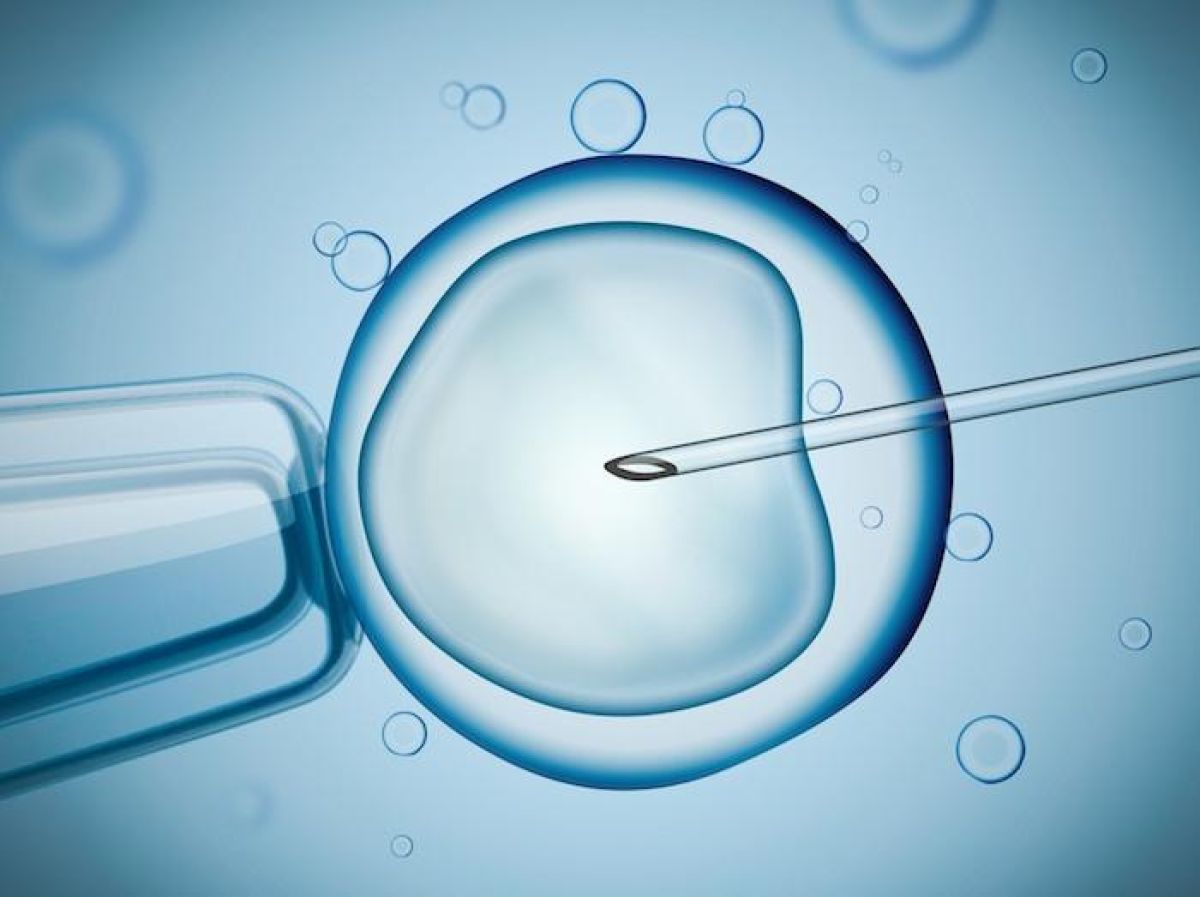Five Benefits of Mini IVF

In vitro fertilization (IVF) can help couples get pregnant when natural conception just doesn’t seem to work. At California Center for Reproductive Health, we stimulate and closely monitor the woman’s ovulatory process during IVF. When the eggs are ready, they’re extracted and put together with sperm in a laboratory.
Once the fertilized eggs form embryos, they’re placed back into the woman’s uterus with the goal of a successful pregnancy.
IVF uses fertility medications to stimulate ovulation and egg development. Mini IVF, also called micro or minimal stimulation IVF, is similar to traditional IVF but uses less medication. The procedure produces only a few eggs as a result and may not include any ovary-stimulating drugs.
We carefully review your history and health to determine if you’re a good candidate for mini IVF. If you are, there are five primary benefits of going with this form of assisted reproductive technology.
1. Reduced risk of ovarian hyperstimulation syndrome
The daily injections of fertility medications that are part of traditional IVF can cause ovarian hyperstimulation syndrome. This condition causes the ovaries to swell and become painful.
Ovarian hyperstimulation syndrome can cause sudden and extreme weight gain and other unwanted health complications. Because mini IVF requires lower doses of fertility medications, your risk of ovarian hyperstimulation syndrome is greatly reduced.
2. Less cost
Traditional IVF requires daily injections of pricey fertility medications. Not all couples can financially afford the process and then provide for their family. Mini IVF offers a more affordable alternative with as good of an outcome.
In general, each mini IVF cycle costs less than half of a traditional IVF cycle.
3. Better choice for women with low ovarian reserve
Low or diminished ovarian reserve means your ovaries do not produce a normal number of eggs. It may result from disease, injury, genetics, or aging. When you have this condition, it’s unlikely the high doses of fertility drugs used during traditional IVF will produce a high quantity of eggs.
The smaller doses used with mini IVF will give you the same results and equal chance at achieving a successful pregnancy.
4. No provocation of cancer
If you’re trying to preserve your fertility prior to cancer treatment, mini IVF may be the best option. The lower doses of medication are less likely to cause complications with your cancer but still allow you to look forward to a family after treatment.
5. Reduced risk of having multiples
Traditional IVF can increase your chances of having twins or other multiple births. The high doses of fertility drugs lead to the production of many viable eggs and embryos. Multiples can cause a high-risk pregnancy and other complications.
With IVF, you can choose to transfer just one or two embryos, reducing your chance of becoming pregnant with twins, triplets, or more.
Our goal with mini IVF is to create two or three quality embryos to place in the uterus to achieve pregnancy. The good news is that if a cycle doesn’t take, you can start again right away.
Call one of our offices in Encino, Alhambra, Valencia, or West Hollywood if you’re struggling with infertility. We want to help you create the family you want in the easiest, least invasive way. You can also reach out to us via our website.
Eliran Mor, MD
Reproductive Endocrinologist located in Encino, Valencia & West Hollywood, CA
FAQ
What does a reproductive endocrinologist and infertility specialist do?
Reproductive endocrinology and Infertility is a sub-specialty of Obstetrics and Gynecology. In addition to managing medical and surgical treatment of disorders of the female reproductive tract, reproductive endocrinologist and infertility (REI) specialists undergo additional years of training to provide fertility treatments using assisted reproductive technology (ART) such as in vitro fertilization.
Reproductive endocrinologists receive board certification by the American Board of Obstetrics and Gynecology in both Obstetrics and Gynecology and Reproductive Endocrinology and Infertility.
When should I see an REI specialist?
In general, patients should consider consulting with an REI specialist after one year of trying unsuccessfully to achieve pregnancy. The chance of conceiving every month is around 20%, therefore after a full year of trying approximately 15% of couples will still not have achieved a pregnancy.
However, if a woman is over the age of 35 it would be reasonable to see a fertility specialist earlier, typically after 6 months of trying.
Other candidates to seek earlier treatment are women who have irregular menses, endometriosis, fibroids, polycystic ovary syndrome (PCOS), women who have had 2 or more miscarriages, or problems with the fallopian tubes (prior ectopic pregnancy).
What are the reasons we are having trouble conceiving?
Approximately 1/3 of the time cause for infertility is a female factor, 1/3 of the time a male factor, and the remaining 1/3 a couples’ factor.
At CCRH, we emphasize the importance of establishing a correct diagnosis. Both partners undergo a comprehensive evaluation including a medical history and physical exam.
Furthremore, the woman’s ovarian reserve is assessed with a pelvic ultrasound and a hormonal profile. A hysterosalpingogram (HSG) will confirm fallopian tube patency and the uterine cavity is free of intracavitary lesions. A semen analysis is also obtained to evaluate for concentration, motility, and morphology of the sperm.
Additional work up is then individualized to direct the best possible treatment option for each couple.
What is IVF? What is the process like?
In vitro fertilization (IVF) is the process that involves fertilization of an egg outside of a woman’s body.
The process starts with fertility drugs prescribed to help stimulate egg development. In your natural cycle, your body is only able to grow one dominant egg, but with stimulation medication we can recruit multiple eggs to continue to grow. After about 8-10 days of stimulation, the eggs are surgically retrieved and then fertilized with sperm in a specialized laboratory. Fertilized eggs are then cultured under a strictly controlled environment within specialized incubators in the IVF laboratory for 3-5 days while they develop as embryos. Finally, embryos (or an embryo) are transferred into the uterine cavity for implantation.
Should I have IVF?
Before deciding if IVF is the right choice, it’s important to sit down with an REI specialist to discuss available treatment options. For some people, other methods such as fertility drugs, intrauterine insemination (IUI) may be the best first choice treatment. At CCRH, we believe each individual couple is unique and not everyone needs IVF.
Is the IVF procedure painful?
While not painful, the fertility medications may some side effects including headaches, hot flashes, mood swings, and bloating. The injection sites may also bruise.
Will IVF guarantee a baby?
Unfortunately, no. Many people think once they start IVF it’s a matter of time that they will be pregnant and have a baby. But according to national statistics per the Society of Assisted Reproduction (SART), on average 40% of assisted reproduction cycles achieve live births in women under age 35. The chances of success then continue to decrease with advancing age.
At CCRH, we employ only evidence-based interventions to ensure patient safety and optimal outcome. While we cannot guarantee a baby, we guarantee that you will receive the best, most advanced, personalized care to help you maximize your chance of a baby.
What is the success rate for IVF?
The average IVF success rate (success measured in live birth rate) using one’s own eggs begins to drop around age 35 and then rapidly after age 40. This is due to the decline in egg quantity and egg quality as a woman ages.
Our clinic’s success rate consistently beats the national average year after year.
Do insurance plans cover infertility treatment? How much does IVF cost?
Individual insurance plans often do not have any coverage for infertility treatments. If you have a group plan, you can call members services to see if they have coverage for infertility (including consultation/workup and IVF).
After your consultation with our REI specialist, one of our dedicated account managers with sit with you to go over the cost of treatment.




